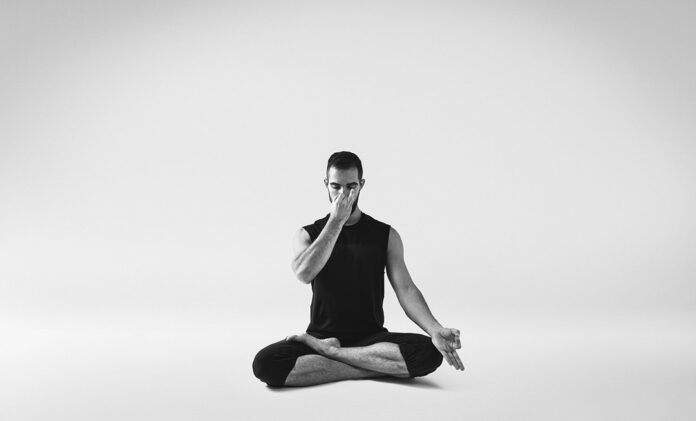 How Movement Impacts Your Emotions
How Movement Impacts Your Emotions
Movement is more than just a way to stay physically fit—it’s a vital key to mental clarity, emotional stability, and daily performance. Whether it’s a brisk morning walk, a deep stretch between meetings, or a flowing yoga session, intentional movement has the power to transform how you think, feel, and show up in your life.
Even ten minutes of light activity can trigger a measurable shift: improved circulation, elevated serotonin levels, sharper focus, and a subtle yet profound sense of emotional balance. You’re not just moving your body—you’re resetting your brain.
And the beauty of it all? Movement doesn’t need to be intense or time-consuming. The magic lies in consistency and intentionality. A daily walk, a few minutes of mindful stretching, or dancing to your favorite song can be enough to shift your internal landscape.
It supports better sleep, steadier moods, and improved cognitive clarity. It’s especially effective in navigating the challenges of a high-pressure day, offering a more centered and in control emotional.
When you move with awareness, you cultivate more than fitness—you cultivate presence, purpose, and emotional strength. So the next time you feel stuck, scattered, or stressed, remember: your next move can start with movement. Because the way you move through your body deeply influences how you move through your life.

How Laughter Boosts Your Immunity
Laughter may seem like a simple human expression, but beneath the surface, it’s a powerful biological response with measurable health benefits—especially for the immune system. When you laugh, your brain releases a cascade of neurochemicals that ripple through your body, directly impacting your immunity.
At the center of this response is the brain’s production of endorphins and dopamine—neurotransmitters associated with pleasure and well-being. This natural high leads to a decrease in stress hormones like cortisol and adrenaline. Since chronic stress suppresses immune function, laughter helps restore balance, allowing the immune system to function more effectively.
Laughter also increases the production of antibodies and activates immune cells such as T-cells and natural killer (NK) cells. These cells play a vital role in defending the body against infections and abnormal cell growth, including cancer. One study found that even anticipating laughter—such as before watching a comedy—can raise levels of beta-endorphins and human growth hormone, both of which are associated with improved immunity.
From a physiological standpoint, laughter enhances respiratory function. A deep belly laugh stimulates the diaphragm, increases oxygen intake, and improves circulation—all of which support immune cell transport throughout the body.
Importantly, laughter also fosters social connection, which in itself has a protective effect on immunity. People with strong social ties tend to have lower levels of inflammation and better immune responses than those who are isolated.
Whether through shared humor, funny movies, or lighthearted conversation, laughter offers an easy, drug-free way to strengthen your defenses.

Gratitude: How Changes Your Brain
Recent research conducted alongside Buddhist monks has provided compelling evidence that gratitude is not just a pleasant emotion—it can significantly alter the brain’s structure and function. As part of a medical study examining the effects of sustained contemplative practices, researchers used functional MRI scans to observe monks engaged in gratitude meditation. The results offer promising insights into how this ancient practice can support mental well-being.
The scans revealed increased activity in the medial prefrontal cortex, an area of the brain responsible for empathy, decision-making, and emotional regulation. Simultaneously, there was a noticeable decrease in activity in the amygdala, the brain’s fear and threat-detection center. These findings suggest that gratitude helps reduce stress responses and enhances emotional stability.
Long-term practitioners of gratitude meditation—such as the monks studied—also showed increased grey matter density in regions associated with perspective-taking and self-regulation. However, the benefits are not limited to lifelong meditators. In a separate three-week study involving new meditators who engaged in simple gratitude journaling, participants reported better sleep, lower anxiety, and improved emotional stability.
These findings support the theory that gratitude is a powerful cognitive reframe, helping shift focus away from scarcity and threat toward safety, abundance, and connection. This shift builds new neural pathways over time, reinforcing a more positive and balanced outlook.

How Sleep Improves Your Memory!
Emerging research in neuroscience confirms what many have long suspected: sleep is essential for memory. Far from being a passive state, sleep is an active and dynamic process that plays a critical role in how the brain stores and retrieves information.
Memory consolidation—the transformation of short-term memories into long-term ones—occurs primarily during sleep. Two key stages are involved: deep non-REM (slow-wave) sleep and REM (rapid eye movement) sleep. Each stage contributes uniquely to memory formation and retention.
During non-REM sleep, the brain reactivates and reorganizes recent experiences, particularly through the hippocampus, a region essential for learning new information. These neural patterns are then gradually transferred to the neocortex, where long-term memories are stored. This process helps reinforce and stabilize what we’ve learned throughout the day.
REM sleep, commonly associated with vivid dreams, is equally important. It allows the brain to integrate emotional and conceptual memories, fostering creativity, insight, and problem-solving. It’s no coincidence that many people report waking up with new ideas or solutions—REM sleep helps the brain make connections that are not always obvious during waking hours.
Sleep deprivation, even for a single night, can severely disrupt these memory processes. Studies show that missing sleep can reduce the brain’s ability to absorb new information by up to 40%. Over time, poor sleep habits can impair focus, decision-making, and learning capacity.
Clinicians are also noting the long-term implications of sleep loss. In patients with cognitive decline and Alzheimer’s disease, disrupted sleep often appears early, hinting at a deeper link between sleep quality and brain health.
For optimal memory, cognitive performance, and emotional resilience, prioritizing consistent, quality sleep is one of the most powerful habits we can adopt.

How Deep Breath Lowers Your Blood Pressure
Deep breathing is often dismissed as a simple relaxation technique, but growing medical research shows it has profound physiological effects—particularly on blood pressure. As a medical expert in cardiovascular health, I can confirm that controlled, slow breathing activates the body’s natural mechanisms for regulating blood pressure and promoting heart health.
When we breathe deeply—typically at a rate of 6 to 10 breaths per minute—it stimulates the parasympathetic nervous system, often referred to as the “rest and digest” system. This counters the sympathetic nervous system, which governs the body’s stress responses like increased heart rate and blood pressure. By shifting the nervous system balance toward calm, deep breathing slows the heart rate, dilates blood vessels, and reduces vascular resistance—all of which contribute to lower blood pressure.
Additionally, deep breathing enhances baroreflex sensitivity. The baroreflex is the body’s built-in mechanism for stabilizing blood pressure. In individuals with hypertension, this reflex often becomes less responsive. Studies show that regular practice of slow, diaphragmatic breathing can retrain the baroreflex, making it more responsive to fluctuations in blood pressure.
Furthermore, deep breathing reduces cortisol levels—the primary stress hormone. Chronic stress and elevated cortisol contribute significantly to high blood pressure. By lowering cortisol, deep breathing helps reduce systemic inflammation and improve vascular tone.
The best part? These effects don’t require special equipment or long sessions. Just five to ten minutes a day of focused, slow breathing can yield measurable benefits over time. In fact, the American Heart Association now recognizes breathing exercises as a complementary strategy for managing high blood pressure.







